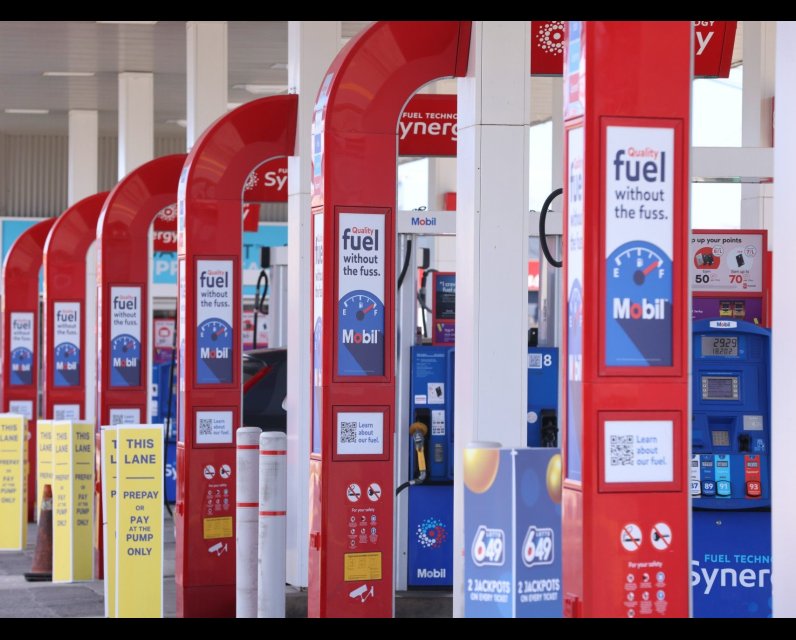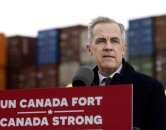Source Feed: National Post
Author: Special to National Post
Publication Date: April 11, 2025 - 07:00
Liberals promised the carbon tax would reduce emissions, but emissions went up
April 11, 2025

Axing the Tax: The Rise and Fall of Canada’s Carbon Tax is a new book from Franco Terrazzano, federal director of the Canadian Taxpayers Federation. Published by Sutherland House Books, it delivers a damning account of one of Canada’s most polarizing policies. In this excerpt, Terrazzano tackles the core promise behind the carbon tax: that it would reduce emissions.
The Trudeau government pushed the
carbon tax
as the best way to help the environment and reduce emissions.
But it’s clear a carbon tax in Canada wouldn’t be effective at lowering global emissions. That’s because Canada only makes up 1.4 per cent of global emissions, a fact former prime minister Justin Trudeau acknowledged.
“Even if Canada stopped everything tomorrow, and the other countries didn’t have any solutions, it wouldn’t make a big difference,” Trudeau said in 2018.
Or as the Parliamentary Budget Officer said, “Canada’s own emissions are not large enough to materially impact climate change.”
A carbon tax that punishes Canadians for fuelling up their vehicles and heating their homes won’t move the needle on global emissions.
It’s like trying to lift a piano onto a truck. It’s easy if you have a bunch of people lifting at the same time. It’s impossible if you don’t. And most countries aren’t lifting with carbon taxes.
About 70 per cent of countries don’t have a national carbon tax, according to World Bank data. Four of the five largest emitting countries — the U.S., India, Russia and Brazil — don’t impose national carbon taxes.
One of the major reasons why Trudeau failed to sell Canadians on the carbon tax being a legitimate environmental solution was because he failed to sell carbon taxes to the international community, including the United States.
The U.S. federal government doesn’t impose carbon taxes. Democratic presidents and candidates ranging from Barack Obama to Hillary Clinton, Joe Biden to Kamala Harris, didn’t impose or run on carbon taxes. Republicans haven’t either.
But that didn’t stop Trudeau from trying to convince the rest of the world. At the United Nations 2021 Climate Conference (COP26), Trudeau announced his government’s attempt to push carbon taxes on other countries.
“One of the things we all know needs to come out of COP26 is a clearer call to create a global standard around putting a price on pollution,” Trudeau said.
He admitted that citizens in countries with a carbon tax are being penalized. Global carbon taxes would “ensure that those who are leading on pricing pollution don’t get unfairly penalized,” Trudeau said.
At the conference, Canada launched the Global Carbon Pricing Challenge (GCPC) — an attempt to get other countries on board with carbon taxes. The government set a goal of having “60 per cent of global GHG emissions covered by carbon pricing policies by 2030.” The program website notes “carbon pricing is most effective when more countries adopt it.”
The government is spending $1.7 million on the GCPC. Only a dozen countries have signed onto the GCPC as “partners,” alongside the European Union. Less than a quarter of global emissions are covered by carbon taxes.
Canadians pay high carbon taxes, but citizens in most countries don’t.
Carbon leakage
This leads to what is known as carbon leakage. When one country, like Canada, imposes high energy taxes and regulations, it doesn’t mean global emissions go down. That’s because high taxes and regulations push businesses to leave and set up shop in more competitive countries.
It’s easy to see how carbon leakage plays out in everyday life. For example, Canadians who live close to the U.S.-Canada border often choose to fuel up their cars in border towns in the U.S.
“B.C drivers facing sky-high gas prices are not only filling their tanks stateside, but also filling containers to bring back with them,” reported the Vancouver Sun in 2019. “Motorists tired of paying almost $1.70 a litre are flocking to the U.S. to pay as little as CAD $1.13 a litre at Costco.”
Former British Columbia Liberal premier Christy Clark referred to the notion in 2016 when she refused to increase her carbon tax.
“What happens in situations like that is polluters just move right across the border and pollute where it’s cheap, and we want to make sure we fight pollution across Canada and across the world,” Clark said. “We will consider raising the carbon tax once other provinces catch up.”
Carbon tax activists also recognized the issue of carbon leakage when they pushed for a Canada-wide tax.
If the carbon tax was not nationwide, then businesses in provinces with no carbon tax would have a competitive advantage over businesses that were forced to pay the tax. This would encourage more businesses to produce in the provinces where there was no carbon tax.
That same rationale extends globally.
The obvious fact — that businesses will go to jurisdictions with lower taxes and regulations — is why activists push for global carbon taxes.
“One of the primary challenges of the fragmented carbon pricing system is carbon leakage,” notes the Leaf, an online publication. “This relocation of production does not reduce global emissions but simply relocates them, thereby undermining the environmental objectives of carbon pricing.”
Another key point: even if other countries imposed national carbon taxes in lockstep with Canada, it doesn’t mean emissions would go down. And that’s because fuelling up a car with gas, heating homes and businesses with natural gas, drying grain with propane, or filling up a big rig with diesel are necessities for most people.
A carbon tax doesn’t stop people from engaging in these activities, it just makes them pay more for the privilege. And that means they’re forced to cut back elsewhere.
To illustrate this point, take a look at B.C.’s experiment with carbon taxes, a model for Trudeau’s tax. B.C. imposed its carbon tax in 2008. The provincial government claimed it would reduce emissions by a third in 12 years.
“By 2020 and for each subsequent calendar year, B.C. greenhouse gas emissions will be at least 33 per cent less than the level of those emissions in 2007,” reads the Greenhouse Gas Reduction Targets Act.
As of 2022, the latest year that government data has been published, B.C.’s emissions are higher than they were before its carbon tax was imposed.
The takeaway is clear: politicians promised the carbon tax would reduce emissions, but emissions went up. At the federal level, the government doesn’t even know how much the carbon tax is reducing emissions, if at all.
Conservative MP Dan Mazier asked if the federal government measures “the annual amount of emissions that are directly reduced from federal carbon pricing.”
Here’s the response from former environment minister Steven Guilbeault, on Jan. 29, 2024: “The government does not measure the annual amount of emissions that are directly reduced by federal carbon pricing.”
Canadians don’t believe carbon taxes work, with 68 per cent of respondents indicating they don’t think the carbon tax is effective at reducing emissions, according to a 2024 Angus Reid Institute poll.
The Trudeau government tried to sell Canadians that carbon taxes in Canada are the “best way” to cut emissions. But the carbon tax is not an environmental solution.
A carbon tax in Canada won’t reduce emissions in the U.S., China or anywhere else. It just makes Canadians poorer.
Our website is the place for the latest breaking news, exclusive scoops, longreads and provocative commentary. Please bookmark nationalpost.com and sign up for our politics newsletter, First Reading, here.
Expressions of grief and sympathy came pouring in on Saturday for an international college student shot dead by mistake in Hamilton while waiting for a city bus.The death of 21-year-old Harsimrat Randhawa, who Hamilton police described as an innocent bystander killed by stray gunfire as occupants of one car shot at another, triggered expressions of grief from officials with the college where she studied, the Canadian city where she lived and the country she first called home.
April 19, 2025 - 16:47 | Sharif Hassan | The Globe and Mail
The Liberal Party is promising to leverage artificial intelligence (AI) and merge similar programs and services to make the public service more efficient. Read More
April 19, 2025 - 14:45 | Paula Tran | Ottawa Citizen
WHITBY, ONT. — On
this week’s Ivison video
, regular guest Eugene Lang referred to “the trifecta — or what Van Morrison
would call The Great Deception.”
Lang, an experienced Liberal operative, was talking about the tendency of governments...
April 19, 2025 - 12:57 | John Ivison | National Post



Comments
Be the first to comment